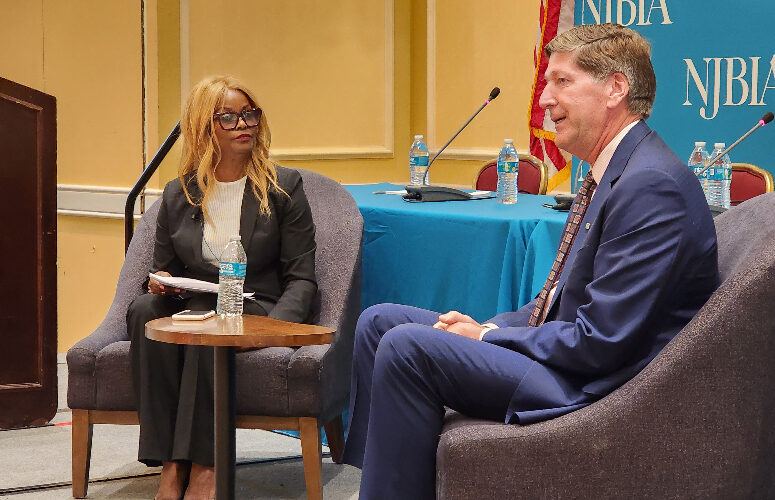
Public Sector Support for Small Businesses
Focusing on pandemic assistance, but with an eye on future business prosperity, public sector agencies are helping small businesses on their paths to greatness.
On Oct 11, 2021No one can deny the amount of assistance state and federal agencies have given to New Jersey businesses during the COVID-19 pandemic. For example, the New Jersey Economic Development Authority (NJEDA) has provided more than $578 million worth of pandemic relief to state businesses since March 2020.
In fact, the authority approved more than 72,300 grants, worth a combined $533 million, through its Small Business Emergency Assistance Grant Program alone. Recently, an additional $125 million for Phase 4 grants was signed into law to fulfill eligible grant applications received during the Phase 4 application period.
Meanwhile, the US Small Business Administration (SBA) injected more than $1 trillion in economic aid to assist small businesses rebuild from the pandemic, including $36.6 billion to Garden State Main Street businesses. Additionally, the SBA’s Paycheck Protection Program (PPP) provided more than 310,000 forgivable loans totaling almost $25.8 billion to New Jersey businesses.
While the country is not in the clear regarding the COVID-19 pandemic and the more dangerous Delta variant, public sector agencies are now focusing on economic growth as more and more people get vaccinated and, in turn, businesses get the wheels of commerce moving again.
(609) 858-6700
According to Tim Sullivan, NJEDA CEO, “As New Jersey moves toward recovery and businesses begin to re-open, our focus is shifting toward helping businesses prepare for long-term growth and creating equitable access to resources and opportunities.”
A central pillar of these efforts, according to Sullivan, is implementing the suite of new programs created by the New Jersey Economic Relief Act of 2020 (NJERA).
Many of these programs include provisions designed to ensure equity. For example, the Emerge job creation tax credit program, which launched in May, provides bonuses for companies that create jobs in distressed communities. The NJERA also adds or expands diversity bonuses for existing programs, including the NJ Film and Digital Media Tax Credit and the Angel Investor Tax Credit Program.
The NJEDA is also developing new grant programs under the Main Street Recovery Program, a key component of the NJERA. The Small Business Lease Grant will provide grants to businesses entering new or amended leases with at least five-year terms that include at least 250 square feet of street-level space. This grant funding will offset a portion of annual lease payments for two years.
The Small Business Improvement Grant will provide grants up to $50,000 to reimburse businesses for a portion of costs associated with improvements and/or the purchase or installation of furniture and fixtures, spent within 12 months prior to the application date.
“Nationwide, the innovation economy is facing a diversity crisis, and Governor Murphy is committed to addressing this imbalance in New Jersey,” Sullivan says. “Between existing programs that include bonuses for minority-owned businesses, such as NJ Ignite, and NJ Accelerate, and forward-thinking initiatives such as the $10-million Black and Latino Seed Fund and the NJ Innovation Evergreen Fund, New Jersey is taking bold steps to achieve Governor Murphy’s goal of building the most inclusive innovation ecosystem in the country.”
Meanwhile, the New Jersey Business Action Center (NJBAC) has been helping businesses as the go-to-first resource during the pandemic. According to Melanie Willoughby, NJBAC executive director, the center is helping businesses “get answers from government agencies, direct them to appropriate officials or contacts, facilitate meetings and follow-ups with regulatory agencies and so much more, all at no cost and strictly confidential.” She says to think of NJBAC “as your connector.”
Willoughby explains that the NJBAC connects businesses with the technical assistance they need for fiscal stability and business continuity, like writing a business plan. It identifies critical access to capital and local, state and federal grant and loan programs, like the SBA, NJEDA, Community Development Financial Institutions, and local banks.
It clarifies state mandated employee benefits, like earned sick leave, paid family leave, temporary disability, and workers’ compensation. Additionally, it identifies licensing and certification requirements one needs to operate, like small business-, women-, minority-, or veteran-owned business certifications.
Willoughby says five of the most important resources that the NJBAC provides to small business owners include: Real-time business assistance, access to financing options, government procurement assistance, export assistance, and informative webinars.
As an example of the webinars NJBAC provides, the center is collaborating with the New Jersey Department of Environmental Protection and the New Jersey Clean Communities Council on “Bag Up NJ” to raise awareness of the 2022 implementation of the Plastic Carryout Bag and Polystyrene Foam Ban law signed into law by Governor Murphy. Other topics include Franchising, What You Need to Know; The Importance of Social Media for Small Business; E-Commerce; and Cyber Security.
The NJBAC has made it easier to provide answers to businesses in real-time with a live chat feature, accessible through business.nj.gov. There is also a professionally staffed business helpline at 1-800-JERSEY-7, open Monday-Friday from 8 a.m. – 5 p.m. Spanish-speaking business advocates are available.
US Small Business Administration
www.sba.gov/offices/district/nj/newark
973-645-2434
At the SBA, New Jersey District Director Al Titone says the agency is providing top-notch assistance and access to its programs that “meet businesses where they are at in their current situations as well as provide products and services that can help them grow.”
Titone realizes that small businesses are the lifeblood of the state’s economy. To that end, the SBA office has been busy helping companies with various products and services throughout the pandemic.
For example, the COVID Economic Injury Disaster Loan (EIDL) program has provided more than 129,000 small businesses and non-profits approximately $9.72 billion to help them meet financial obligations and operating expenses that could have been met if COVID had not occurred. “These long-term, low-interest loans (up to 30-year term at a low interest rate; 2.75% for non-profits and 3.75% for small businesses) have helped bridge the gap for so many of our entrepreneurs,” Titone says.
There have also been 229 Shuttered Venue Operators Grants approved for New Jersey, providing $142.4 million to hard-hit venues such as live venues, movie theatres, museums and performing arts organizations, among others. Additionally, 3,086 restaurants were awarded Restaurant Revitalization Fund (RRF) payments of more than $923 million as well.
973-353-1927
Working in partnership with the SBA, the New Jersey Small Business Development Centers (NJSBDC) has counseled and trained thousands of small business owners and entrepreneurs on operational issues that helped them recover from the pandemic’s effects.
According to Deborah K. Smarth, NJSBDC CEO and associate state director, “As a result of our comprehensive assistance for small businesses and entrepreneurs, many businesses applied and obtained EIDL, PPP, and other financing, including grants to help them maintain and stabilize their businesses from the effects of COVID.”
She says that many NJSBDC business clients re-opened, developed new strategies and recovered financially due to the comprehensive support provided by the center’s business experts.
The NJSBDC also provided special training webinars that were attended by thousands of business owners. “They took advantage of learning about business practices to jumpstart, recover, and support resiliency and future growth to overcome the challenges of COVID-19,” Smarth says.
Webinar topics included: Safety and health driven re-opening practices, supply chain management, successful operational strategies, working remotely, enhancing business continuity plans, avoiding cybersecurity threats, and intellectual property protection, etc.
Partnering and leveraging the expertise of key collaborators at Rutgers University (the host of the NJSBDC statewide program), minority-owned small businesses were further assisted. Surveys targeted to small businesses across the state – including NJSBDC’s clients – were conducted and counseling/training areas for small business assistance are continually adjusted based on needs assessment and business demand.
“From the restaurant owners and retail stores on Main Street to the science-technology companies seeking to bring their innovations to the marketplace, the NJSBDC provided the necessary personalized counseling and training that helped carve a path towards resiliency,” Smarth says.
“Our 12 regional SBDCs, hosted by higher education institutions, along with the specialty programs educating on procurement, international trade, and tech-commercialization, have now fortified the direction of small business revitalization and a resilient future,” she concludes.
To access more business news, visit NJB News Now.






